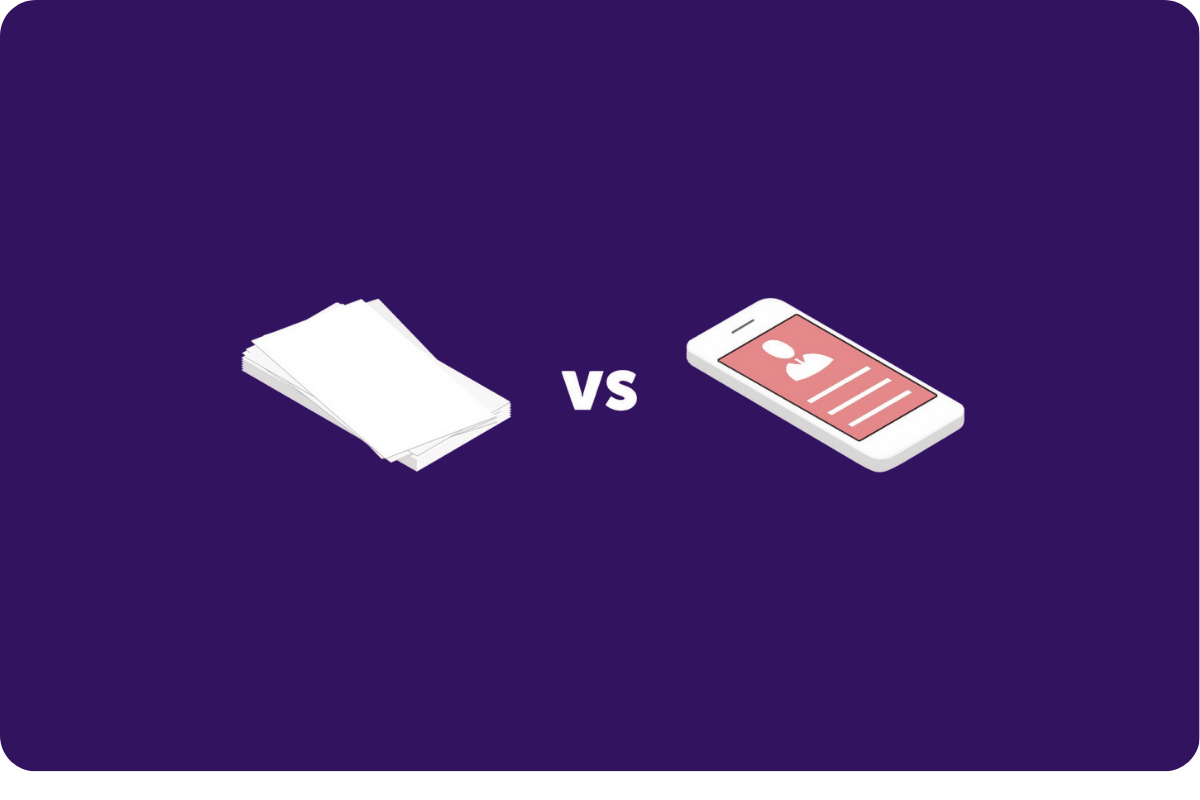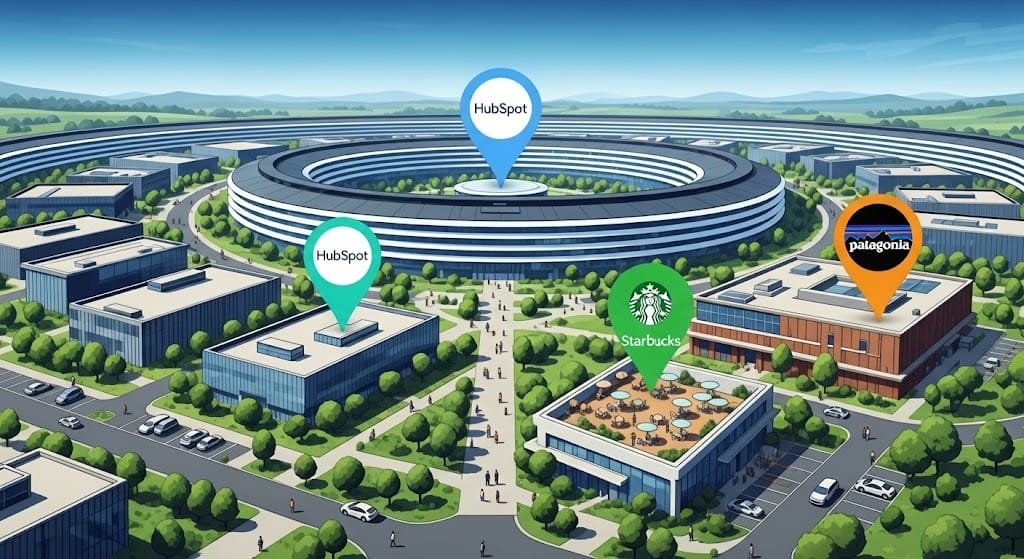Digital business cards vs traditional paper cards
Explore the pros, cons, costs, and sustainability of digital vs traditional business cards.

Let's be honest: paper business cards are the fidget spinners of professional networking. They had their moment, but do they still belong in your pocket in 2025?
Whether you're a founder, freelancer, recruiter, or sales professional, here's the real question:
Are paper business cards still worth it, or is it time to go digital?
In this post, we'll compare the cost, convenience, and impact of digital business cards vs traditional paper ones so you can make the smartest call for your brand.
Table of contents
- The classic option: paper business cards
- The modern solution: digital business cards
- Comparing the costs: which is actually cheaper?
- Environmental impact: which one is greener?
- Flexibility and function: what do you actually get?
- Track everything and improve your outreach
- Should you switch to digital?
- Going hybrid? That works too
- Ready to upgrade?
The classic option: paper business cards
They've been around for centuries and are still common at conferences and trade shows. But let's look at the pros and cons.
Pros of paper cards:
- Everyone knows what they are
- Can be visually appealing when well-designed
- Feels personal when handed over
Cons of paper cards:
- Easy to lose, toss, or forget
- Expensive to reprint when your details change
- Not interactive or clickable
- No data, no analytics
- Not environmentally friendly
Think about it: when was the last time you followed up with someone because of a paper card?
The modern solution: digital business cards
Digital business cards live on your phone, NFC device, or even a short link. They're interactive, flexible, and trackable.
Pros of digital cards:
- Shareable via tap, QR code, or link
- Update anytime with no need to reprint
- Include video intros, social links, calendars, portfolios
- Eco-friendly and zero waste
- Track engagement and integrate with your CRM
- Always accessible (no more "I forgot my card" moments)
Cons of digital cards:
- Requires a smart device or connection
- Not everyone is familiar with them (yet)
Want to learn more about how NFC business cards work?
What is an NFC business card and how does it work?
Comparing the costs: which is actually cheaper?
| Feature | Paper cards | Digital cards |
|---|---|---|
| Upfront cost | $25–$200 for a batch | $0 to $79 per year |
| Reprints | Frequent and pricey | Free updates anytime |
| Scaling to a team | Costs increase fast | Easy to duplicate and manage |
| Long-term ROI | Hard to measure | High, due to tracking and integrations |
Paper cards are a fixed expense
Digital cards are a smart investment
Curious about digital card pricing?
How much does a digital business card cost?
Environmental impact: which one is greener?
- Over 7 million trees are cut down every year to produce paper business cards.
- 88% of printed cards get thrown away within a week.
- Digital cards produce zero physical waste.
If sustainability matters to your brand, the choice is obvious.
Flexibility and function: what do you actually get?
Paper cards give you a name and number. Digital cards give you an interactive experience that can include:
- Links to social profiles
- Google Maps location
- Calendar booking tools like Calendly
- PDFs or pitch decks
- Video introductions
- Lead capture forms
- Instant contact saving
And if your role, number, or brand changes? Just edit your digital card - no reprint necessary.
Looking to build your personal brand with a digital card?
How to use digital business cards to build your personal brand
Track everything and improve your outreach
With paper cards, once you hand it over, you're in the dark.
With digital cards, you can:
- See who opened your card
- Track clicks on your links
- Measure performance across teams
- Sync with platforms like HubSpot or Salesforce
It's not just a business card. It's a lead generation tool.
Should you switch to digital?
If you want to:
- Make a stronger impression
- Modernize your networking
- Align with your brand's sustainability goals
- Actually track your outreach
Then yes, it's time to upgrade your business card.
But here's the key: not all digital business cards are created equal.
Look for one that is:
- Custom-branded
- Easy to share in multiple ways
- Secure and private
- Affordable for teams and individuals
- Compatible with your existing tools
Going hybrid? That works too
You don't have to go fully digital overnight. Some professionals still carry a few paper cards just in case.
But leading with a digital card shows that you're up to date, efficient, and serious about how you present yourself.
The world has moved online. Your card should too.
Ready to start your digital business card journey?
Join the platform trusted by industry leaders and instantly share who you are with anyone, anywhere.



